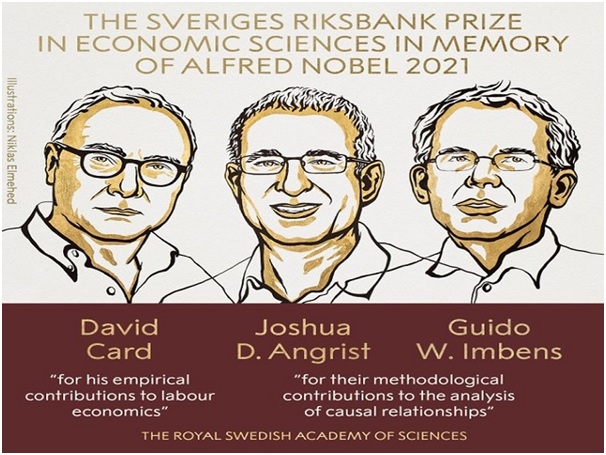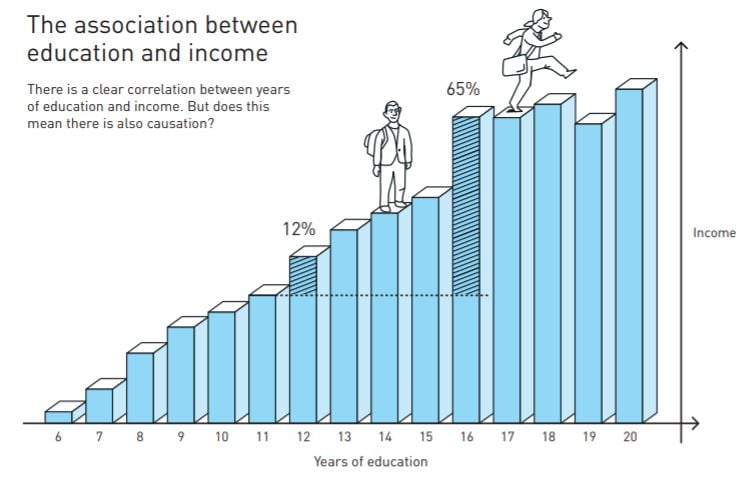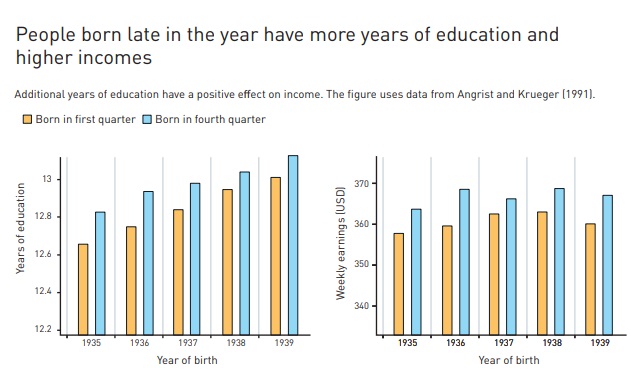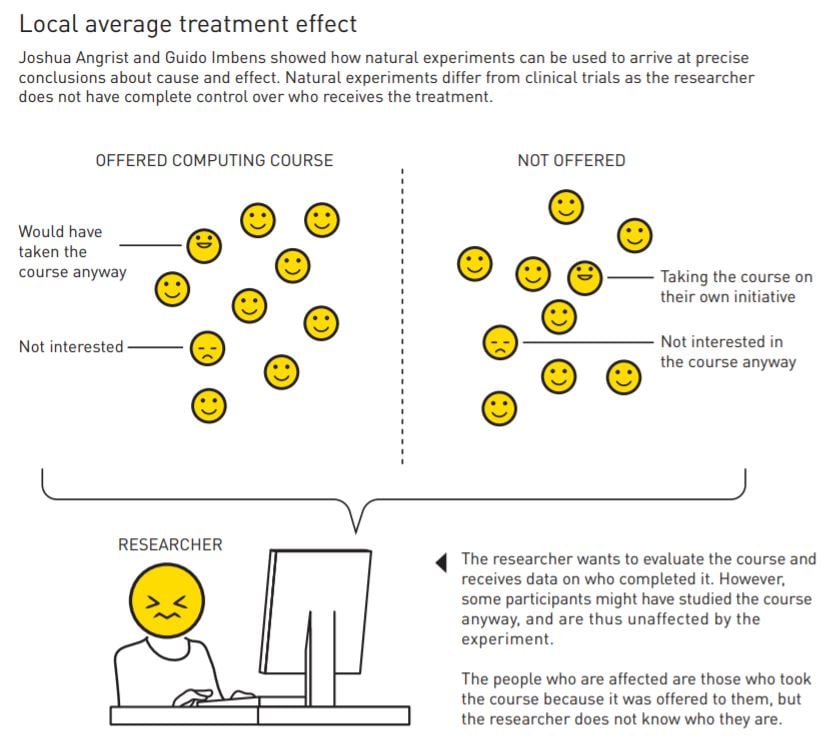
Immigration leads to a shortage of work and wages for the workers of the hometown, well this is a common belief, but how true is it? Giving unemployment benefits makes people complacent about seeking employment. Is it really true? Well, the latest novel laureates in economics have some great studies to throw some useful light on this matter. As the news must have reached to you that this year’s novel prize in Economics has been awarded to Dutch-American economist Guido Imbens, Israeli-American economist Joshua Angrist and Canadian-American economist David Card. They have not discovered some extraordinary formula or presented some earth-shattering theories, but what they have done is come up with some very simple answers working on some very basic and simple answers, but whose impact have been earth-shattering. So, we would hereby try to look into some such experiments.

An Interesting Fact
Well…just give me a while let me clear out a fact before getting into this year’s awards. This came as a jaw-dropping fact for me as well, but the truth is Nobel Prize in economics is not ‘actually’ a Nobel Prize. Yes…you heard it right, its formal name is Sveriges Riksbank Prize and it is awarded by the Royal Swedish Academy of Sciences, Stockholm, Sweden. But, since it is given on the same principles as Alfred Nobel, it is given along with the Nobel Prizes only.
Education and Income
Well, there is no exaggeration in claiming that higher education helps people in earning a high income in their lives. When we look at these studies, we do find this association verifying itself. According to the studies, a direct correlation has been found at 7%. But, still, we can’t say that the correlation (relation between the two) is direct, because we know sometimes two random things also present a direct relationship but they don’t actually have one. There are many other factors like talent, dedication and grittiness which are at work. For example, some of the talented people would have been able to earn better income anyways and in their case, more education has just been a compliment. Similarly, some people knew in which direction they should be heading, and they purposefully chose to devote more years of their lives which ensured they earned a higher income. Joshua Angrist and Alan Krueger (his colleague who is unfortunately no more and hence, not eligible for the prize).

Another interesting result was that people who are born early in the year have a higher income than those born later in the year. Now, it might sound too peculiar, but when we get into the details, we will get the answers. Actually, in the USA (where the experiment is conducted), there is a specific date to start schooling, irrespective of your birth month or precise age. Also, a student is free to leave school as soon as he turns 16 or 17 (depending on his particular state). Now, suppose Person I is born in March and person II is born in October, both start their schooling some five years later on the same date. Now, Person I will turn 16/17 earlier than Person II and can leave school and Person II will get one extra year of education. And…this experiment shows that the effect of this one extra year of education on income is 9%. But, long term data (say 30 years) don’t show anything like that. The reason again is randomness. For example, any of the factors like region-based policy changes, admission cut-offs, income thresholds could have resulted in such a result. So, finally, it can be said that unintended casualness results in uncovering casual relationships.

Immigration, Minimum Wage and Labour Market
Early economic theories believed that a higher minimum wage leads to a reduction in employment because the firms lay off workers to accommodate the extra cost of increased minimum wage. But, the experiments conducted by David Card and Alan Krueger show path-breaking results. They conducted the experiment on the fast-food markets of Pennsylvania and New Jersey, bordering states with similar labour markets. While the minimum wage was increased in New Jersey (Treatment Group), it was kept the same in Pennsylvania (Control Group). But, despite that, no change was observed in the New Jersey market. The reason was believed that the firms possessed monopsonistic powers (customers didn’t have many options among sellers) and were easily able to transfer the extra cost to the customers. Plus, firms being powerful meant they kept the wages low, so a rise in the minimum wage actually encouraged more workers to join the workforce. These experiments also paved the way for many such experiments in future, primarily by David Card. So, ultimately it is believed that the pros of the higher minimum wage are much more than its cons.
Similarly, David Card also studied the effect of immigration on the wage and employment structure of the economy. for this, he used the data of Miami in comparison to four adjoining and similar states. Actually, in 1980 Cuban President Fidel Castro allowed all Cubans to leave the country if anyone wished. As a result of which around 1,25,000 Cuban migrants immigrated to Miami, but as per the studies of Card, no change in the wage rate or employment of Miami was observed. The reason was believed that natives shifted to such jobs which demanded local skills such as language, evading competition from the immigrants. Anyways, it is very clear that immigration dies not ‘eat’ away from the jobs and wages of the locals as was widely believed. Something, which our ‘NRCist’ government should look at.
David Card and Alan Krueger also studied the effect of the level of educational resources on returns on education. They studied the people who have lived and studied in different states (Alabama or Iowa) but now live in some other place (say California). Among those, the comparison is made between people with the same level of education. Now, if the returns on education are different, means some are more skilled logically or practically or even theoretically, it means that the quality and investment in education is different in those states. It means the states that have better invested in education or broadly say, into human capital, will produce more skilled and trained people into the workforce and facilitate their success in the future.
Conclusion: Randomness can be Marvelous Sometimes
Now, what can we say that we did learn from these experiments of these economists. There have been quite a few random results such as one more year of education resulting in higher income. On the other hand, it can be definitely said is that better quality of education leads to more skilled and successful entrants into the labour market. One big result which needs to be specifically seen is the one that shows that immigrants don’t lessen the wage and employment of locals. But, what we can call the hallmark of these results is ‘Randomness’. Any of the results that we got above is ‘completely’ based on the particular sample or the people we selected. So, the results came that way only because those particular people were included in the sample, whether out of chance or because they wanted to participate in the experiment. If in some way, some other people would have experimented, the results could have been completely different.

Here only the concept of ‘Control Group’ and ‘Treatment Group’ comes into play. If the participants are getting divided into these groups naturally or randomly, then the results can be said very reliably, but if the participants purposefully participated because of some bias, opinion or notion then that result can’t be called very reliable on a large scale because it can change completely with change in the sample. But, at the same time, one thing that has come up is that some important questions of life can be answered using some Natural Experiments. All and all, these works have revolutionized the way empirical researches are done and the way, we or say the research communities can answer the questions of importance. So, here I would like to wrap this up by thanking the three economists for such a NOBLE deed. These are the words that seem so simple but hold so much significance in our lives.

